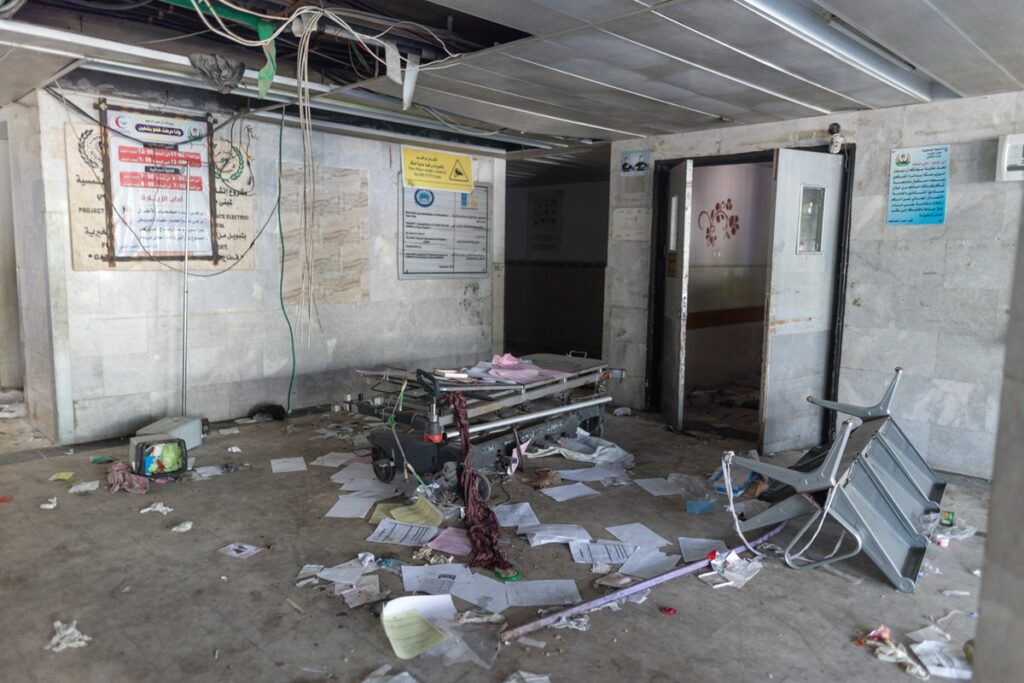WHO is deeply concerned that a full-scale military operation in Rafah could lead to bloodshed. More than 1.2 million people are currently displaced in the region, many unable to move elsewhere.
A new wave of displacement will worsen overcrowding and further limit access to food, water, health and hygiene services, leading to increased disease outbreaks, worsening hunger levels and further loss of life.
Amid repeated attacks and shortages of vital medical supplies, fuel and staff, only 33% of Gaza's 36 hospitals and 30% of primary health centers are partially functioning.
As part of the emergency response, WHO and partners are working urgently to restore and revitalize health services, including by scaling up services and pre-positioning supplies. They will not be able to cope with the sudden increase in numbers. Rafa's invasion will happen.
The three hospitals currently in partial operation in Rafah (Al-Najjar Hospital, Al-Helal Al-Emarati Hospital, and Kuwait Hospital) are experiencing rapid deterioration as a result of the intensification of fighting nearby, with patients, staff, and , ambulances and humanitarian workers cannot safely approach. It will stop working. The Europa Gaza Hospital, east of Khan Yunis, currently serves as a third-level referral hospital for critically ill patients, but could become isolated and unreachable during the invasion, leaving it vulnerable. be. Taking this into account, six field hospitals in the south and Al-Aqsa Hospital in the central region will remain as the only referral hospitals.
As part of our ongoing efforts to address the emergency, WHO, partners and hospital staff have completed the first phase of repairs at the Nasser Medical Complex, including cleaning and ensuring the functionality of critical equipment. The emergency ward, nine operating rooms, intensive care unit, maternity ward, neonatal intensive care unit and outpatient department are currently partially functional, with national staff working there as well as the emergency medical team.
To reduce the burden on hospitals, WHO and partners are establishing additional primary health centers and health hubs in Khan Younis, the Central Area and northern Gaza, and ensuring that these facilities detect infectious and non-communicable infections. We have prepared medical supplies in advance for treatment. Treat illnesses and manage wounds. A new field hospital is being set up in Al Mawashi, Rafah.
A large amount of medical supplies were moved there from the WHO's warehouse in Rafah, as a large WHO warehouse was set up in Deri Albara and could become unreachable during the invasion. These measures will help ensure the rapid transit of supplies to Khan Yunis, the Central Region and northern Gaza if necessary.
In the north, WHO and partners are stepping up efforts to replenish and expand services at Kamal Adwan, Al-Ahly and Al-Awda hospitals, and helping transport critically ill patients to hospitals where they can receive the treatment they need. are doing. survive. Plans are also underway to help rebuild a patient-friendly hospital with a focus on pediatric care.
Despite contingency plans and efforts, the WHO warns that significant increases in mortality and morbidity are expected in the event of a military invasion.
WHO calls for an immediate and durable ceasefire and the removal of obstacles to the provision of emergency humanitarian assistance at the scale needed in and across the Gaza Strip.
WHO further calls for the sanctity of medicine to be respected. Parties to the conflict have the coordinates of medical facilities. It is essential that healthcare facilities are actively protected and remain accessible to patients, healthcare workers, and partners. The safety of medical and humanitarian workers must be guaranteed. Those who are trying to save lives should not put their own lives at risk.


